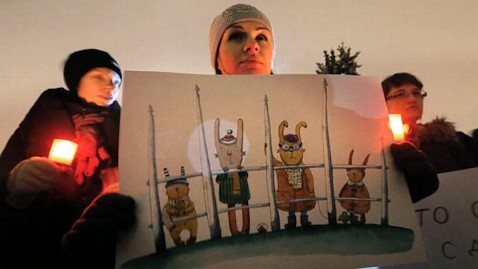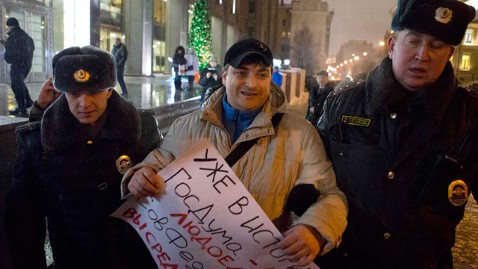MOSCOW (Reuters) - President Vladimir Putin signaled on Thursday he would sign into law a bill barring Americans from adopting Russian children and sought to forestall criticism of the move by promising measures to better care for his country's orphans.
In televised comments, Putin tried to appeal to people's patriotism by suggesting that strong and responsible countries should take care of their own and lent his support to a bill that has further strained U.S.-Russia relations.
"There are probably many places in the world where living standards are higher than ours. So what, are we going to send all our children there? Maybe we should move there ourselves?" he said, with sarcasm.
Parliament gave its final approval on Wednesday to the bill, which would also introduce other measures in retaliation for new U.S. legislation which is designed to punish Russians accused of human rights violations.
For it to become law Putin needs to sign it.
"So far I see no reason not to sign it, although I have to review the final text and weigh everything," Putin said at a meeting of federal and regional officials that was shown live on the state's 24-hour news channel.
"I intend to sign not only the law ... but also a presidential decree that will modify the support mechanisms for orphaned children ... especially those who are in a difficult situation, by that I mean in poor health," Putin said.
Critics of the bill say the Russian authorities are playing political games with the lives of children, while the U.S. State Department repeated its "deep concern" over the measure.
"Since 1992 American families have welcomed more than 60,000 Russian children into their homes, and it is misguided to link the fate of children to unrelated political considerations," State Department spokesman Patrick Ventrell said in a statement.
Ventrell added that the United States was troubled by provisions in the bill that would restrict the ability of Russian civil society organizations to work with U.S. partners.
Children in Russia's crowded and troubled orphanage system - particularly those with serious illnesses or disabilities - will have less of a chance of finding homes, and of even surviving, if it becomes law, child rights advocates say.
They point to people like Jessica Long, who was given up shortly after birth by her parents in Siberia but was raised by adoptive parents in the United States and became a Paralympic swimming champion.
However, the Russian authorities point to the deaths of 19 Russian-born children adopted by American parents in the past decade, and lawmakers named the bill after a boy who died of heat stroke in Virginia after his adoptive father left him locked in a car for hours.
Putin reiterated Russian complaints that U.S. courts have been too lenient on parents in such cases, saying Russia has inadequate access to Russian-born children in the United States despite a bilateral agreement that entered into force on November 1.
NATIONAL IDENTITY
But Putin, who began a new six-year term in May and has searched for ways to unite the country during 13 years in power, suggested there were deeper motives for such a ban.
"For centuries, neither spiritual nor state leaders sent anyone abroad," he said, indicating he was not speaking specifically about Russia but about many societies.
"They always fight for their national identities - they gather themselves together in a fist, they fight for their language, culture," he said.
The bid to ban American adoptions plays on sensitivity in Russia about adoptions by foreigners, which skyrocketed as the social safety net unraveled with the 1991 Soviet collapse.
Families from the United States adopt more Russian children than those of any other country.
Putin had earlier described the Russian bill as an emotional but appropriate response to the Magnitsky Act, legislation signed by President Barack Obama this month as part of a law granting Russia "permanent normal trade relations" (PNTR) status.
The U.S. law imposes visa bans and asset freezes on Russians accused of human rights violations, including those linked to the death in a Moscow jail of Sergei Magnitsky, an anti-graft lawyer, in 2009.
The Russian bill would impose similar measures against Americans accused of violating the rights of Russian abroad and outlaw some U.S.-funded non-governmental groups.
(Reporting By Alexei Anishchuk; additional reporting by Andrew Quinn in Washington; Writing by Alissa de Carbonnel and Steve Gutterman; Editing by Andrew Osborn and Doina Chiacu)











